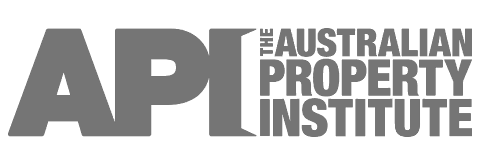
The role of information in plant & equipment valuations
Any form of valuation is entirely reliant on the information used throughout the investigation. After all, the core of the valuation process is in market and financial analysis. This is data-dependent. Licensed plant and equipment (P&E) valuers in Melbourne provide insights into the worth of tangible assets, including vehicles, machinery and equipment held by businesses.
This is essential for:
- financial reporting
- taxation purposes
- insurance coverage
- making informed business decisions.
In order to assess the value of any plant and equipment accurately, a wide range of critical data points must be compiled and analysed. This begins with listing the likes of an asset’s type, make, model, age, condition and specifications.
They will also need to gather information on the purpose of the assets, their usage history and any modifications or repairs made. This is supplemented by information regarding the prevailing market conditions such as supply and demand dynamics for similar plant and equipment in the local market.
Other major influencing factors include industry trends, technological advancements and changes in regulations. Businesses will also need to supply various financial records and documentation.
Other useful information could include documentation related to the purchase price, acquisition date and any relevant depreciation or amortisation schedules that provide crucial detail.
To consider all of these factors, valuers call on broad, highly specialised skill sets.
What information on the market and economy is crucial?
In Australia, P&E valuations play an important role in the market and economy. The inverse is true as well. Certified Practising Valuers (CPVs) employ broad knowledge and research into both across all valuation methodologies.
Considering these factors is crucial when conducting valuations for financial reporting, investment decisions, taxation and more. This ensures accuracy and compliance.
The local market and economy have a profound effect on the results of any valuation.
Valuers will need to gather research on the likes of:
- supply and demand dynamics
- industry trends
- market conditions.
Each can influence the market value of plant, machinery and equipment in various ways.
In a thriving, growing economy, there is increased demand for these kinds of assets. Naturally, this will result in a higher valuation. The opposite is true as well. In economic downturns or market fluctuations, the demand may decrease, resulting in lower valuations.
Valuers will also need to develop extensive lists of similar assets. This is used to make direct comparisons between that list and the assets being valued, giving your valuer a better idea of their current value on the market.
Finally, valuers must research various industry-specific factors, technological advancements and regulatory changes that may impact the valuation.
What information is needed for insurance purposes?
One of the most common reasons to pursue an asset valuation is for loan purposes. Lenders in Australia require very specific information to determine your insurance coverage.
Any insurer will require as much information on the physical asset as possible. This would include its general condition, wear and tear, maintenance history and existing damages or defects.
This is partly determined by gathering various key documents. These might be purchase invoices, maintenance records or previous asset valuations.
Age and depreciation are core components of any insurance application as well.
Other vital descriptive details include an asset’s:
- make
- model
- year of manufacturing
- serial numbers
- unique features or modifications.
Arguably the most important detail of a P&E valuation for insurance purposes is the asset’s replacement cost. In other words, the cost of replacing the asset in the event of any loss or damage. This is a vital part of determining market value. Factors like inflation and any specialised components or customisations must be reviewed here too.
By gathering this information, insurance providers can accurately determine the appropriate coverage for plant and equipment assets. This helps to ensure that policyholders are adequately protected in the case of unforeseen events such as theft, damage or loss.
What is the most important part of a P&E valuation?
P&E valuations can have significant impacts on a business's future and how it plans for growth. After all, various machinery and equipment often make up a large portion of a company’s assets. For this reason, the accuracy of the results, as well as the data used to get there, are vitally important.
Ensuring accuracy in a valuation is largely a matter of the methods used.
The primary methods used are:
- the cost method
- the sales comparison method
- the income capitalisation method.
As their names suggest, these methods are based on assessing the cost of replacing an asset, comparing that asset to others on the market and the potential income that asset generates.
When valuers carry out these methods, they do so in full compliance with various regulations, standards and guidelines established by the government and other official bodies. This helps to secure accurate and reliable reporting, as well as an ethical, objective and transparent approach.
Another vital aspect to account for is the purpose of the valuation. Whether a valuation is done for tax or accounting purposes will affect what information a valuer focuses on, as well as which methods of research and analysis they lean on most.
Not being mindful of accuracy and purpose can have far-reaching ramifications for a business. This could result in a misrepresentation of the company's financial health, which can have negative consequences for investors and other stakeholders.
If you think your business may need a P&E valuation, contact one of our licensed valuers today.





